

PM GREENLIGHTS PAKISTAN’S FIRST SKILLS IMPACT BOND TO MAKE YOUTH EMPLOYABLE
g UNDER NEW MODEL, YOUTH WILL BE TAUGHT SKILLS IN LINE WITH CONTEMPORARY REQUIREMENTS
g STRESSES EQUIPPING THE YOUTH WITH LEARNING LOCAL AND FOREIGN LANGUAGES TO A SSIST THEM IN FINDING EMPLOYMENT ABROAD
g A SSURES GOVT WOULD CONTINUE PROVIDING ALL POSSIBLE LEGAL AND DIPLOMATIC SUPPORT IN THE MATTER OF DR AAFIA SIDDIQUI
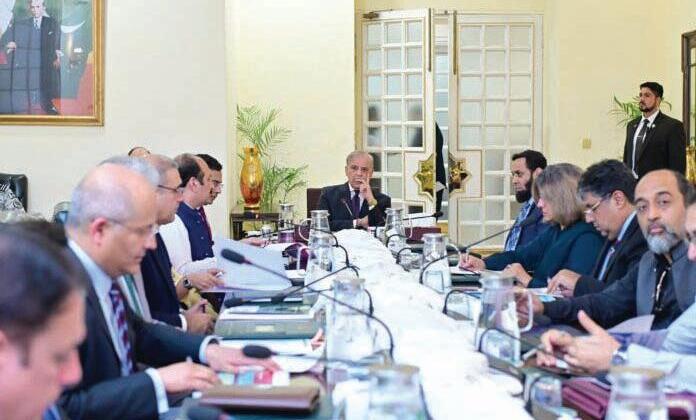
ISLAMABAD
istry Affairs the Prime Minister s Youth Programme (OMYP) the National Vocational and Technical Training Commission
Chief of Tajikistan armed forces, CJCSC discuss regional securit y, shared strategic interests
RAWALPINDI
s ta f f r e p o r t
Major General Saidzoda Bobojon Abdukodir Chief of the General Staff of the Armed Forces First Deputy Minister of Defence of the Republic of Tajikistan called on General Sahir Shamshad Mirza, NI (M), Chairman Joint Chiefs of Staff Committee (CJCSC) at Joint Staff Headquarters, Rawalpindi The discussion focused on the evolving regional security situation and shared strategic interests Both military leaders emphasized deep-rooted brotherly relations between Pakistan and Tajikistan and explored avenues to further strengthen bilateral defence cooperation The visiting dignitary lauded the professionalism of the Pakistan Armed Forces and acknowledged their sacrifices in the fight against terrorism Earlier, upon arrival at Joint Staff Headquarters, a smartly turned-out tri-services contingent presented a Guard of Honour to the visiting dignitary A day earlier Royal Saudi Naval Forces (RSNF) chief of staff Vice Admiral Mohammed bin Abdulrahman Al Ghuraybi and Chairman of the Joint Chiefs of Staff Committee (CJCSC) General Sahir Shamshad Mirza on Thursday reaffirmed mutual resolve to enhance bilateral defence cooperation, the military’s media wing reported In a statement the InterServices Public Relations (ISPR) RSNF chief of staff Vice Admiral Mohammed bin Abdulrahman Al Ghuraybi called on Chairman Joint Chiefs of Staff Committee (CJCSC) Gen Sahir Shamshad Mirza at Joint Staff Headquarters in Rawalpindi on Thursday The CJCSC
WASHINGTON
s ta f f r e p o r t
(NAVTTC) and all related institutions in providing employment to the youth He said opportunities should be provided to youth for learning the local languages of other countries to assist them in finding employment abroad A comprehensive roadmap based on the estimated
United States Secretary of State Marco Rubio on Friday lauded Pakistan’s role in “global and regional peace acknowledging Pakistan s everlasting sacrifices in the war on terror, according to the Foreign Office (FO)
In a statement issued by the FO said that it was Marco Rubio’s first meeting with Deputy PM and Foreign Minister Ishaq Dar as previously the two have talked over the telephone The FO said that the US secretary of state lauded, Pakistan has always played a positive role in global and regional peace ”
The statement said that the two held detailed discussions on bilateral relations and potential cooperation in various sectors According to the FO, DPM Dar arrived in Washington, DC, on Thursday night on the second leg of his eight-day visit to the US He had arrived in New York on Monday to attend high-level signature events of Pakistan s United Nations Security Council (UNSC) presidency, including a conference on Palestine it added “Discussions were held on promoting bilateral trade and economic relations and cooperation in important sectors including investment, agriculture, technology, and minerals Counterterrorism and regional peace were
number of job opportunities and hiring of youth in Pakistan and abroad should be presented he said adding he will review the progress of implementation of the roadmap after every two months
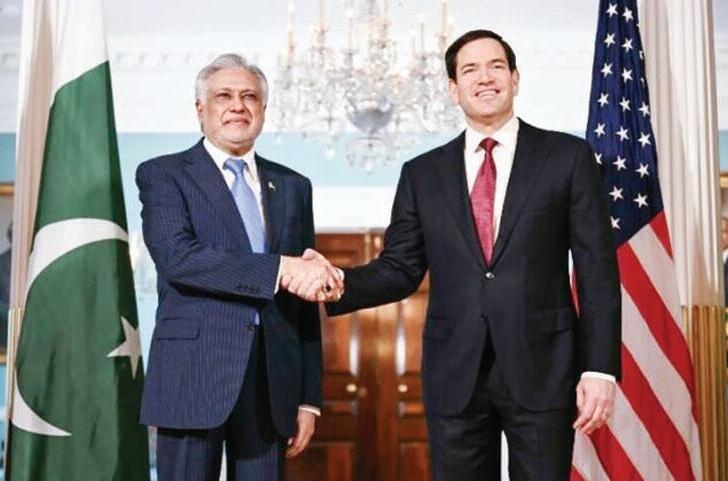
also discussed the FO reported FM Dar paid tribute to the efforts of President Donald Trump and the US leadership in promoting global peace, adding that their role and efforts regarding the recent Pakistan-India tension were “commendable Pakistan and the US seek further expansion and stability in bilateral relations, he said The FO said FM Dar was optimistic about the positive progress in the ongoing trade dialogue between the two countries Pakistan is an attractive destination for the American business community and investors The two countries have a common approach and interests regarding regional peace The Pakistani community in the US is playing a bridge role be-
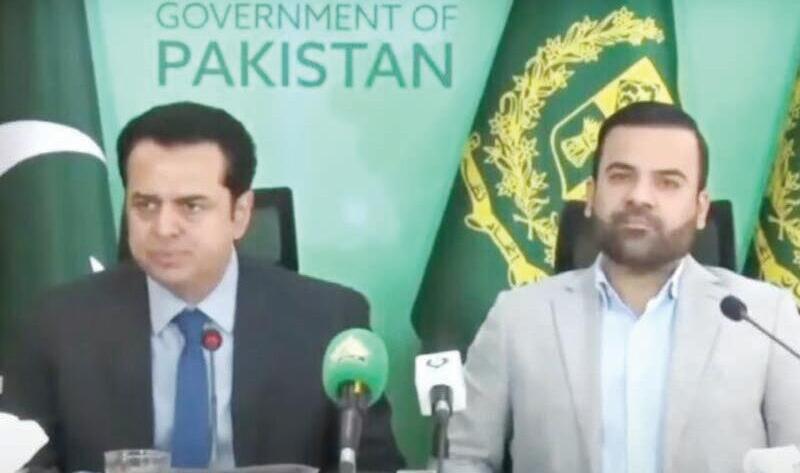
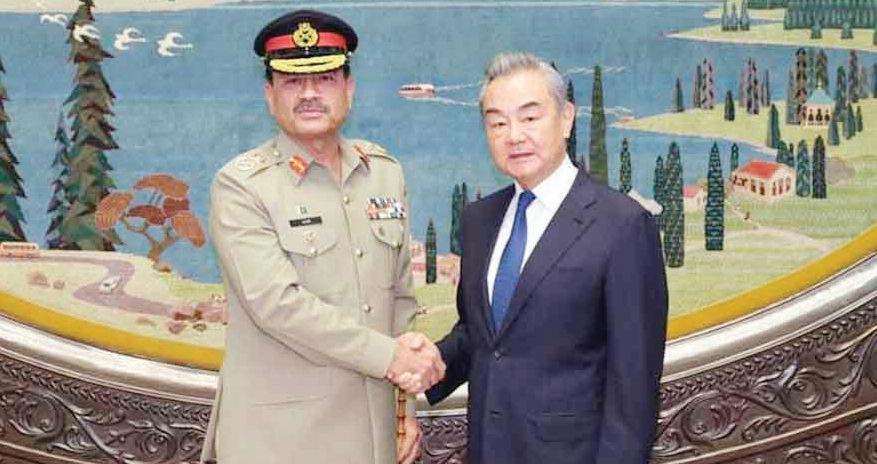

Pakistan to launch competitive electricit y market within two months, says
PPPA appoints experts to 15 positions, prepares to fill 47 more roles
The Public-Private Partnership Authority (PPPA) has appointed experts to 15 technical positions so far, with efforts underway to fill an additional 47 technical roles across various federal departments This development was discussed during a review meeting chaired by Prime Minister Shehbaz Sharif on Friday as per a statement released by the Prime Minister s Office (PMO) During the meeting, PM Shehbaz emphasised the government’s commitment to institutional reforms describing them as a top priority of his administration He reaffirmed the gov-
ernment s agenda to focus on economic digitisation, rightsizing of government institutions, and the merit-based appointment of experts within public sector entities
The PPPA briefed the Prime Minis-
PSX closes higher by 514 points, driven by S&P rating upgrade and investor optimism
(Digital POS integration), and Section 25A penalties during the meeting of Senate Committee on Revenue and Finance SCCI urged the government to immediately withdraw harsh tax steps and antibusiness proposals from Finance Act 2025-26 According to details a meeting of the Senate Standing Committee on Finance and Revenue was held under chairmanship of the committee chairman Senator
Saleem Mandviwalla in the parliament house, said in a statement here on Friday Apart from the Sarhad Chamber of Commerce and Industry president Fazal Moqeem Khan Group leader and FPCCI former president Ghazanfar Bilour, member of the chamber s executive committee Sajjad Zaheer, office bearers and representatives from various chambers of commerce and industry were in attendance during the meeting In the meeting the SCCI leaders firmly opposed several regressive budgetary provisions, including Sections 37A, 37B and collection of additional tax on sale of over Rs200,000 in section 21(S), unjust recruitment of FBR officials under the section 8B SRO-709 (Digital POS in-
tegration), and Section 25A penalties
The meeting thoroughly deliberated upon the business community reservations on the afore-stated sections and digital invoicing system
The meeting acknowledged the anomalies, issues and assured corrective action
It also assured that the implementation of the Digital Invoicing System may be deferred whereas Sections 37A 37B and 21 (S) of the Finance Act 2025-26 to be modified to bring some sort of relaxation in these sections so that would provide immediate relief to the community
The SCCI and business leaders on the occasion thanked the Senate Standing Committee on Finance and Revenue for its assurance to address the genuine concerns
and legitimate demands of the business community The SCCI said the outcome reflects the united voice of the business community strengthened by coordinated advocacy stakeholder unity and strategic engagement
It also reaffirms SCCI s unwavering commitment to serving businesses through advocacy, engagement, and evidencebased policy recommendations signaling a path toward growth sustainability and mutual understanding among all stakeholders
The committee chairman Senator Saleem Mandviwalla told the meeting that the government is fully committed to facilitate businesses and remove hurdles for smooth trade and export

ISLAMABAD

KP TO AUCTION SIX NEW GOLD MINING LEASES, EACH VALUED
bank indicates that although the currency is still down over 2% against the US dollar year-to-date it has shown signs of recovery in the past three trading sessions As of July 11 Pakistan s foreign exchange reserves had increased by $23 million to reach $14 53 billion On Friday, the rupee appreciated by 0 27% in the interbank market, closing at 283 45 against the US dollar up by Re0 77 from the previous session s close of 284 22 This marks the continuation of a recovery trend that started earlier in the week Currency dealers attribute the rupee’s recent gains in part to a crackdown on illegal currency smuggling Malik Bostan Chairman of the Exchange Companies Association of Pakistan (ECAP) said raids by the Federal Investigation Agency (FIA) had reduced dollar demand in informal markets, helping stabilize rates in both the interbank and open markets He disclosed that he led a delegation to meet ISI Counter-Intelligence Chief Lieutenant General Faisal Naseer, after which targeted enforcement actions were reportedly launched against smugglers operating on routes to Afghanistan and Iran

With this crackdown the smuggler mafia has gone underground, Bostan stated, adding that with continued enforcement, the exchange rate could strengthen further possibly reaching Rs270 or even Rs250 against the dollar Meanwhile global currency movements also played a supportive role The US dollar hovered near two-week lows on Friday, with the dollar index heading for its weakest

ON E of the recurring themes that has emerged from hearings before parliamentary committees is the rush by power companies to complete essential paperwork, namely the transfer of properties in their use into their name First the Senate committee on Privatization was told on Wednesday that the five distribution companies were getting a number of properties transferred into their name in anticipation of privatization Then the very next day the National assembly Economic affairs committee was told that the National Transmission and Dispatch company s properties had to be transferred to its successor companies, the Independent System Market Operator, the National Grid company of Pakistan, and the Energy Infrastructure and Development Management company, after it was unbundled
The government stands revealed as displaying a casualness that is almost frightening The properties to be transferred to the DIScOs come from both federal and provincial governments, and include land belonging to various departments It probably was counted as showing initiative and a can-do spirit when these lands were transferred to WaPDa, but the failure to transfer the land on paper has created difficulties in privatization a cost arrangement between two government departments will not persist when one is privatized The Privatization commission is now busy making sure that the properties are formally transferred and that if there is any litigation going on, it is settled Obviously, buyers would include any property disputes, or use of land not backed by documentation in their evaluations The same is happening to the NTDc successors, though the committee was told this by a World Bank representative, because the necessary amendments must be made in the various contracts so that work on the World Bank’s power transmission project can go ahead It should not be forgotten that the unbundled NTDc companies are expected at some time in the indeterminate future to go on the auction block too
In fact, the straightening of the land revenue record for government properties should be done for all departments whether or not they are to be privatized The department responsible for this is one of the oldest of the government s departments but if the government itself is so casual about keeping itself going according to the book, how can it expect the citizen to obey its laws and regulations Such irregularities do not make people rush out of the house and run a red light but they have an effect ultimately

M A
Cities failing the climate test
Ea c h year, the onset of the monsoon season brings not only rainfall but also unfortunately considerable suffering for many people Media reports often cover incidents of drowning fatalities accidents electrocutions, and the collapse of infrastructure or housing
While the media highlights issues of mismanagement and inadequate preparations for the monsoon, this coverage typically lasts only a few days or weeks at most Unfortunately this pattern fades quickly as attention shifts to other news events This recurring yearly cycle reveals a troubling lack of accountability and a failure to implement sustainable reforms Extreme weather events are increasingly prominent not just in Pakistan, but everywhere however, some characteristics are specific to Pakistan One is the lack of urban resilience that even brief spells of rainfall can pose challenges for citizens The phenomenon of urban flooding has become a rampant issue primarily attributed to man-made factors rather than natural causes The rapid growth of city boundaries has turned natural landscapes, such as wetlands, into impermeable surfaces like roads and buildings, which reduces rainwater absorption and increases overflow construction in low-lying areas also obstructs water flow and increases flood risk
Poorly designed inadequately maintained and overly burdened drainage systems further intensify urban flooding Improper waste disposal practices are obstructing drainage systems and intensifying flooding challenges additionally, solid waste is disposed of at open dumping sites located near waterways which clogs natural drainage systems This problem stems from inadequate urban planning and there is currently no effective monitoring system in place to address serious environmental risks an inefficiently planned transportation infrastructure has contributed to a growing reliance on private vehicles, increasing air pollution Removal of trees and vegetation for highways and bridges is further exacerbating the situation Pakistan s five-percent forest cover is significantly below the recommended benchmark of 25 percent which is another reason for flooding in cities, disrupting human lives, property, and existing infrastructure Urban centres are pivotal to economic development; however they encounter substantial challenges when not designed to accommodate and adapt to evolving dynamics a city lacking the capacity to absorb adapt and transform in response to population growth or environmental changes jeopardizes the safety and well-being of its residents against natural calamities
Pakistan is the fifth most populous country in the world In the past 30 years, the urban population has more than tripled This rapid urbanization has strained infrastructure and resources cities have expanded chaotically beyond their administrative boundaries to absorb the rising population
historically, urban planning in Pakistan has been marked by ad hoc and unregulated development and inconsistent planning practices Beyond that, cities are struggling with ineffective policies and political interference
The challenge of effective governance persists across all major cities all are showing significant urban planning deficiencies and growth in informal settlements, which often lack essential facilities In 2022, approximately 56 percent of Pakistan’s urban population lived in slums Even Islamabad considered a planned city is not without challenges related to uneven growth and expansion Pakistan has acknowledged the importance of addressing climate change, as reflected in the 20252026 budget Several strategies and policies have been announced or drafted, including the National climate change Policy 2021 the National adaptation Plan and Nationally Determined contributions among others in line with global agreements primarily aimed at reducing emissions however there is still no tailored climate strategy or adaptation framework that explicitly addresses Pakistan s unique needs and challenges
While these frameworks recognize the significance of urban resilience they do not specifically address the challenges faced by Pakistan Pakistan s challenges go beyond financial constraints There is an urgent need to address fragmented governance and improve coordination among planning, disaster management, and climate mitigation departments Limited technical capacity within local municipalities, combined with a lack of comprehensive data further hinders effective urban planning and management It is crucial to explore ways to generate local resources for the effective operation of institutions at the local level Municipalities have limited influence over major planning decisions, with significant decisions made by government departments,

For the well-being of the population in Pakistan, better awareness of the ecological issues is essential Citizen par ticipation is crucial When cities involve citizens in planning and decision-making, it creates a sense of ownership among them This engagement helps communities feel more connected and leads
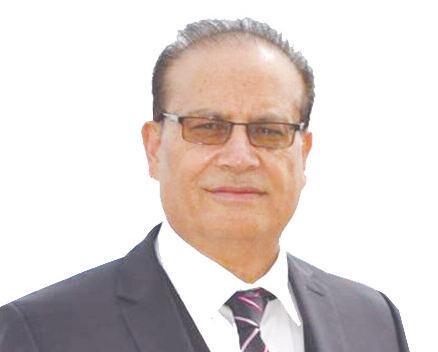

staff meatpacking plants Pull this vital workforce and the US supply chain falls apart factories shut down, exports plummet and global contracts are cancelled Perhaps most dangerously the USa loses its creative spark Nearly half of all PhD holders in STEM fields are foreign-born Immigrants contribute to over 25 percent of US patents each year These are the minds building new vaccines, designing space systems, and securing digital infrastructure When these innovators vanish so does the USa’s future Then there s the fiscal nightmare Immigrants contribute over $330 billion in taxes annually funding Social Security, Medicare, Medicaid, and public schools Their departure would tear massive holes in state and federal budgets Pensions would become unstable Infrastructure funding would dry up Many rural hospitals and schools already on financial life support would shutter permanently Economic modeling by Uc Merced and the Bay area council estimates that removing undocumented immigrants alone would cost california up to $275 billion annually roughly 9

percent of its state GDP Scale that across the country, and the US economy could shrink by over $1 5 trillion, with ripple effects triggering global recession Governor Gavin Newsom has made it clear: Immigrants are the backbone of california s economy They are the reason california leads in technology, agriculture, and service he warned that recent immigration crackdowns threaten the entire ecosystem “Under the constitution, the Governor of california and all staff will protect immigrants by all means possible without relent and this will be done with the cooperation and goodwill of all inhabitants of california whether immigrants or not his words echoed as Los angeles reeled from IcE raids that left neighborhoods terrified, businesses unmanned, and families torn apart Without immigrants america doesn’t just lose labour it loses soul structure and strength It stops being a destination of dreams and becomes a monument to fear No economy no matter how powerful, survives by cannibalizing the very people who build it Immigrants have cleaned the USa’s homes and innovated its tech They’ve raised its children and revitalized its cities They’ve laid its foundations literally and figuratively To drive them out isn t just a political miscalculation; it s economic suicide Immigration isn t the USa s burden it s the USa s engine and without that engine, the world’s most powerful nation will stall and fall The writer retired as Press Secretary the the President and is former Press Minister at Embassy of Paikistan to France and former MD Shalimar Recording & Broadcasting Company Limited
without provocation, the sovereign, neighbouring nations of Iran, Lebanon, Syria, Iraq and Yemen? Moving on, would they be supporting instead of opposing, per mandatory legal obligation, the ongoing IcJ designated ‘plausible’ genocide in Gaza where Israel has slaughtered tens of thousands of innocent men women and children?
If so instead of holding Israel account-able and punishable for its brazen lawless barbarity would they not be rewarding it with recognition ? Would they not be taking such a morally and legally unjustifiable action just to please the US, without whose full-spectrum, unlimited and unconditional support, Israel would have been unable to sustain
flashes press briefings and high-minded declarations lies a narrative that refuses to be ignored: war has become a saleable commodity repackaged and exported under the guise of defense and deterrence, and Ukraine is now its most lucrative pretext Trump, who not long ago ridiculed NaTO as obsolete and rebuked the European Union for freeloading on US defence contributions is now recasting himself as a peacebroker with theatrical flair he once boasted that he could end the war in Ukraine within days a claim as grandiose as it is untested Yet, rather than presenting a coherent or structured diplomatic blueprint, Trump’s latest manoeuvre involves doing exactly what he once condemned: arming Ukraine with the financial burden shifted largely onto European allies according to The Guardian Trump has now struck a deal with NaTO partners to continue supplying Ukraine with weaponry ironically paid for by the very nations he once criticized This abrupt reversal is not merely ironic; it is deeply suspect It raises questions not only about his true intentions but also about the underlying motives of the broader Western establishment: is this pivot toward arming Ukraine truly a strategy for peace, or merely a tactical step in a larger game of mil-
itary-industrial opportunism?
During his recent interactions including reported telephonic contact with Vladimir Putin there appeared to be a fleeting window for diplomatic de-escalation however, what followed defied the conventional logic of ceasefire negotiations Rather than pausing military operations or signaling diplomatic restraint both Ukraine and Russia intensified their assaults Ukraine continued to strike Russian targets, seemingly emboldened by renewed Western endorsement and forthcoming military support, while Russia retaliated with an expanded scale of attacks
This synchronized escalation unfolding against the backdrop of Trump s supposed peace initiative casts serious doubt on whether de-escalation was ever genuinely on the table It appears increasingly plausible that the theatre of conflict is being deliberately kept alive timed perfectly with new arms announcements diplomatic optics and vague promises of sanctions that never bite deep enough
This is where the broader context begins to crystallize The USa has long reigned as the preeminent global supplier of arms, with titanic corporations like Lockheed Martin, Raytheon Technologies, Northrop Grumman Boeing Defense and General Dynamics occupying central positions in what President Eisenhower once warned of as the military-industrial complex These entities are not passive beneficiaries of global instability they are active stakeholders whose growth is inextricably tied to the perpetuation of global tensions Whether the region in focus is Eastern Europe the Middle East South asia or the Indo-Pacific the pattern is hauntingly repetitive: provoke or extend a crisis, construct a binary moral framework, and then step in as the essential supplier of
military hardware and strategic counsel The war in Ukraine has become not an exception but a textbook case of this script
Trump s sudden reengagement with NaTO an alliance he once called obsolete is emblematic of his opportunistic and transactional worldview By proposing that arms be supplied to Ukraine but funded predominantly by European nations, he positions the USa as a benevolent facilitator while absolving his administration of direct financial or political risk This clever outsourcing of responsibility appeals to domestic isolationist sentiments in the USa, while simultaneously ensuring that European allies remain tethered to US defence supply chains as The Washington Post highlights the Trump-aligned proposal recalibrates NaTO s burden-sharing not out of solidarity but out of strategic calculus Europe pays the bill while the USa directs the narrative and controls the arsenals
Further compounding this ambiguity is Trump’s shifting tone what The Guardian aptly described as a “tonal Uturn his vague threats of sanctions against Russia paired with his encouragement for more weapons deliveries to Ukraine suggest deliberate obfuscation Is Trump genuinely attempting to deter Moscow s aggression, or is he simulating a crisis to legitimize further militarization?
The arms packages announced under his name lack transparency in timelines logistical structure or terms of engagement This fog of ambiguity only fuels a self-sustaining militaristic momentum while eroding any credible path toward diplomatic resolution It is the politics of perpetual preparation, rather than resolution adding further credence to this view are the recent actions and declarations by key European leaders which reveal a parallel militaristic recalibration French President Emmanuel Macron, long an advocate of European “strategic autonomy,” has dramatically shifted his tone in recent months he announced a significant increase in France’s defence budget pledging over €400 billion in military spending through 2030 and even

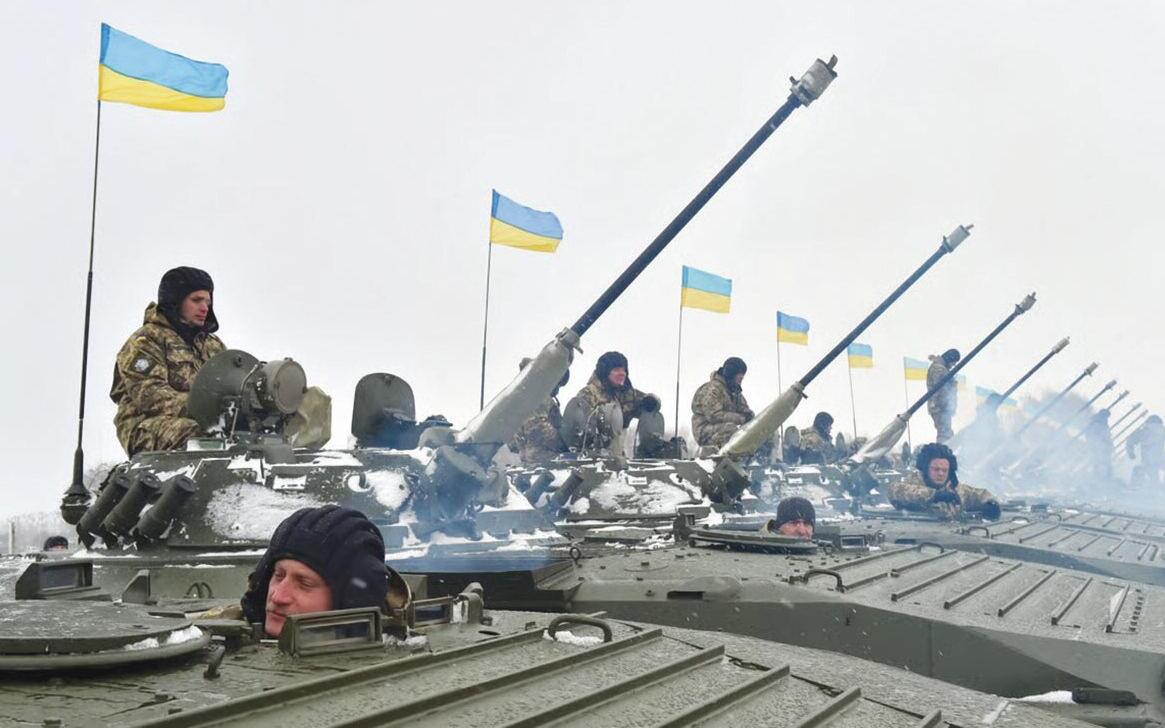
floated the idea of European nuclear preparedness under French deterrence a move that implicitly underscores a preparation for prolonged continental conflict Germany likewise has broken post-war precedent by committing to long-term defense hikes allocating over €100 billion for Bundeswehr modernization The UK, not to be left behind, is also expanding its defence commitments with increased ammunition production and a larger military footprint in Eastern Europe
Why the West’s project to overthrow Iran’s government is doomed to fail
IN the closing months of 2025 the political landscape of the Middle East once again saw the revival of a decades-old idea that despite repeated failures, remains alive in Western power circles: regime change in Iran through external pressure, particularly military intervention Following direct clashes between Iran on one side and the U S and Israel on the other the discourse of intervention has returned to the forefront of Western media and political debate This is despite the fact that neither past experiences in the region from Iraq and Libya to afghanistan nor expert analyses support the feasibility or positive outcomes of such a path This report offers a documented analytical look into the failures contradictions and consequences of the regime change policy toward Iran
The policy of regime change in Iran has always been based on the assumption that external pressure can rapidly dismantle the country s political structure however, in reality, Iran’s governing system has developed a network of defensive, intelligence, and public mobilisation institutions capable of responding to such scenarios in the face of intense economic military and political pressures contrary to popular belief domestic protests and widespread societal discontent are not necessarily signs that the public is ready to accept a power vacuum or foreign intervention In many instances external pressure has not weakened the regime; instead it has reinforced its internal cohesion and provoked nationalist sentiments
This policy pursued by Washington and its allies in various forms since the 1980s has not only failed in the case of Iran but has also produced instability rather than lasting political transformation in other countries Experiences in Libya and Venezuela show that relying on external pressure without internal consensus leads to chaos not sustainable change In Iran the regime sustains itself not merely through repression but also via social connections and ideological cohesion Thus, change imposed from the outside without first disrupting these internal bonds has consistently failed The continued push for this outdated policy reflects not a solution but a lack of strategic imagination in Western foreign policy
THE PARADOX OF ENGINEERED COL-
LAPSE: Policies such as harsh sanctions or military threats have not weakened the regime Instead, by worsening public living conditions and eroding civil institutions they have had the opposite effect What is presented as support for freedom in practice accelerates social and economic collapse The case of Iraq clearly shows that toppling a government without
a targeted collapse without consideration for Iran s complex social and political structures paves the way for divergent forces to emerge contrary to what some Western governments believe, the Islamic Republic is not just a political regime it is deeply embedded in religious, military, and ideological institutions that form part of the Iranian state identity Therefore efforts to force its collapse without a gradual and deliberate replacement process lead not to liberation but to the reproduction of structural violence
INTERNAL COHESION AND THE REGIME’S ADAPTIVE CAPACITY: One critical miscalculation in confronting Iran is the failure to recognize the regime’s ability to adapt to both internal and external pressures Despite mounting economic crises and public dissatisfaction the ruling system has managed to maintain its position by internally recalibrating, relying on security forces, and leveraging religious and nationalist narratives What is sometimes interpreted as a looming collapse due to the state-society divide may instead reflect a negotiation process seen in many transitional societies Iran s ideological and military structures are capable of not only defending themselves during crises but also generating new legitimacy for the regime In addition to structural flexibility, the regime effectively employs soft power tools: control over domestic media the strengthening of religious charities and ideological mobilization in schools and universities are all part of the system s legitimacy-building apparatus Furthermore by exploiting foreign threats to evoke a sense of national victimhood, the regime has succeeded in fostering a feeling of solidarity even among some discontented segments against an “external enemy ” These soft tools complement the hard security apparatus greatly boosting the regime s resilience and adaptability especially during the crises of 2025
Empirical evidence shows that regime change through external means rarely leads to democracy
Instead, it often empowers more extremist forces and spreads instability In Iran’s case given its ethnic, religious diversity and critical geopolitical position such a scenario could have catastrophic consequences a power vacuum would sharply increase the risks of civil conflict and separatist movements
The absence of a clear transition plan would severely threaten not only Iran s internal security but also the region’s stability The emergence of extremist groups growing violence and waves of migration would be just some of the potential consequences of such an unstructured situation
The US withdrawal from afghanistan and the Taliban s return serve as a stark warning of the unforeseen results of regime change When power vacuums are filled by armed ideological groups, democracy is not achieved it is postponed for decades In Iran similar conditions could empower quasi-state military factions or remnants of the previous regime now operating in even more extreme ways This is why any externally imposed idea of change, without an endogenous and gradual process, will only further dim the prospects of democracy
LESSONS NOT LEARNED FROM IRAQ AND
AFGHANISTAN: The experiences of Iraq and
afghanistan have made clear that top-down regime change even with military might does not necessarily lead to lasting order In the absence of legitimate and functional institutions, what follows is power vacuums, instability, and cycles of violence In Iraq, the structural vacuum post-Saddam allowed extremism to thrive a pattern that could easily repeat in Iran under similar conditions
The developments of 2025 demonstrate that despite unprecedented pressures Iran has not only preserved its system but in some cases redefined its political and security positions and rebuilt its regional standing This seriously undermines claims that quick collapse is a viable or effective strategy
Meanwhile the human costs of such interventions have been far greater than anticipated In just the early years of the Iraq war over 500 000 civilians were killed or displaced In afghanistan an incomplete state-building project meant that, after two decades of Western military presence, the entire structure collapsed in a matter of weeks Repeating the same path in Iran a more complex, rooted and regionally integrated state is not only illogical but shows a failure to learn from history
The continued use of coercive measures aimed at removing Iran s governing structure has not only failed but has become a new source of regional instability These strategies bring neither security nor development In contrast, a set of policies based on dialogue diplomatic openings and empowering civil forces within Iran offers a more rational path forward
Unless Western policymakers abandon the allure of quick military solutions any intervention will merely reproduce the same crises experienced in the Middle East for decades Only by understanding Iran’s historical, cultural, and social realities can an effective and humane strategy be formulated as the world moves toward a multipolar order the persistence of force-based approaches and disregard for national sovereignty will increasingly meet resistance from emerging powers china Russia, and even some arab states have shown less inclination to support confrontational projects against Iran This trend could leave the US geopolitically isolated at a time when multilateral cooperation is more crucial than ever for addressing global crises a rational strategy lies not in eliminating a regime but in engaging with it purposefully to foster gradual, internal change
FROM THE ILLUSION OF INTERVENTIONISM TO DIPLOMATIC REALISM: all the evidence and past experiences reviewed here suggest that the policy of regime change in Iran whether through crippling sanctions or military threats is ineffective costly and dangerously unpredictable for the region On one hand, Iran s ruling structure has maintained its stability; on the other, the international community has come to feel the true costs of interventionist approaches more than ever If the real intention is to support the Iranian people then the focus must be on diplomacy respect for national sovereignty and empowering in-
The figures are shocking: just 60m of the world’s adults – 1.6% of the population –have net personal wealth of $226tn, or 48 1% of all the world’s riches
majid NaBi Burfat

PRESIDENT MACRON WIDELY PRAISED AS FRANCE SET TO RECOGNISE STATE OF PALESTINE
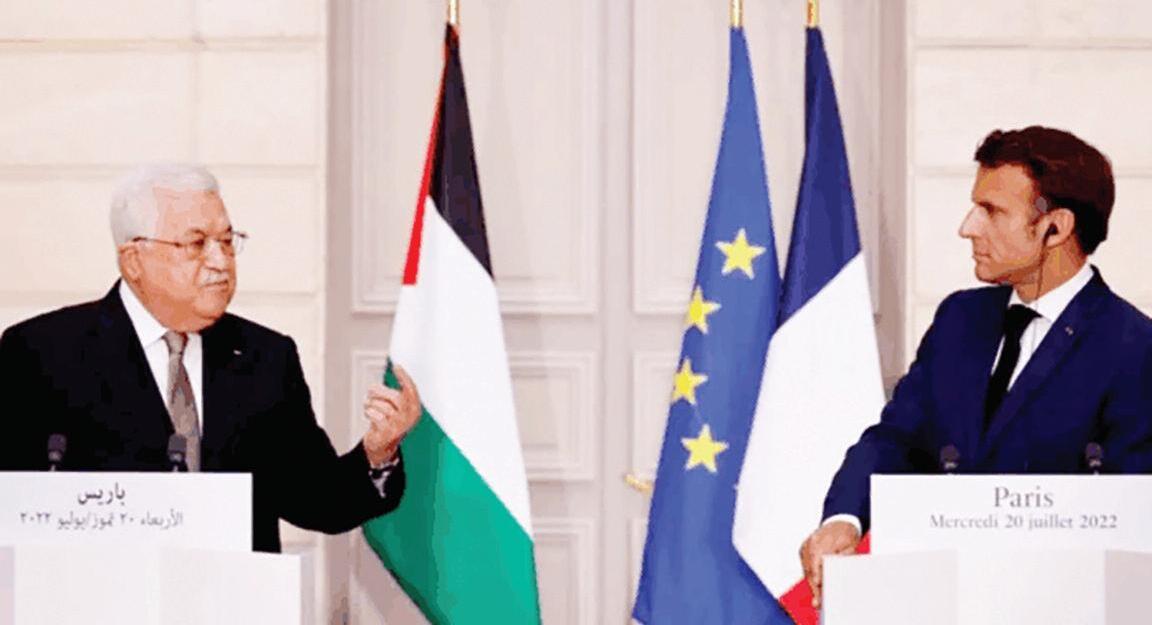
The S ecret Behind M ar yam Nawaz ’s Rising Popularity
mafias have also infiltrated educational institutions
the Para Force
strategic thinking Every initiative she undertakes is rooted in the welfare of the common citizen
One of her most commendable efforts is the formal launch of the Punjab Counter-Narcotics Force (CNF) the first of its kind in Pakistan Drug abuse remains a pressing issue worldwide and Pakistan is no exception A significant portion of the affected population is the youth, who are often targeted by organized drug mafias Alarmingly, these
Recognizing the gravity of the problem Maryam Nawaz established the CNF as a specialized force to counter the drug menace in Punjab The force has officially commenced operations across the province, with divisional offices and stations already functional In the second phase CNF’s reach will extend to the district level Officers and personnel of the CNF have received 12 weeks of professional training at the ANF Academy in Rawalpindi Take Lahore, for example areas like Dharampura, Mughalpura, Lal Pul, Ichhra, Chauburji, and Data Darbar were once hotspots for drug addicts particularly young individuals Today such scenes have largely disappeared demonstrating the tangible impact of CNF s efforts Under the 18th Amendment, Punjab has emerged as the only province to establish multiple specialized enforcement forces under Maryam Nawaz’s leadership These include:
Wildlife Protection Force
Environment Force
Forest Force
PERRA (Punjab Enforcement & Regulatory Authority) – Also known as
Among these, PERRA holds special significance It is the first of its kind in Pakistan dedicated to tackling inflation hoarding illegal profiteering and encroachments across Punjab This force is active at both district and tehsil levels and is equipped with modern weaponry, advanced 3D-modeled stations, and a dedicated uniformed workforce Each force has its own Director General and command structure with new recruitments offering dignified employment to hundreds of young people In addition, through the "Sutrah Punjab Project", over 120,000 young individuals have already been provided jobs further contributing to social and economic stability Unlike traditional political strategies that revolve around rhetoric and media headlines, Maryam Nawaz s governance is firmly grounded in visible, impactful work She only inaugurates projects once they are fully operational and ready to serve the public a departure from the paper-only announcements often seen in past administrations
The people of Punjab are fortunate to have a visionary leader who values discipline, accountability, and progress
Unlike previous Chief Ministers who took a year merely to familiarize themselves with the basics of governance
Maryam Nawaz has already launched over 80 public welfare and relief projects within her first year in office
The priorities of a leader are reflected in their governance whether they serve the people or chase the preservation of their own power In Maryam Nawaz s case, her focus is unmistakably on the well-being of Punjab’s 140 million citizens One of her most admirable traits is her balanced approach to leadership She encourages and rewards high performance but does not hesitate to reprimand negligence Her firm belief in merit, accountability, and reward motivates her entire team to deliver with dedication and responsibility
As a result Maryam Nawaz’s popularity continues to grow across all segments of society She has become the people s first choice for leadership in Punjab Even her political opponents, in private conversations, are beginning to acknowledge her success a fact echoed by recent public surveys
Maryam Nawaz’s effective governance has inspired citizens in other provinces to wish for leadership of similar vision and capability Her rise is not just a political success; it s a beacon of hope for progressive, people-centered governance in Pakistan The author is PSO to Punjab Information Minister

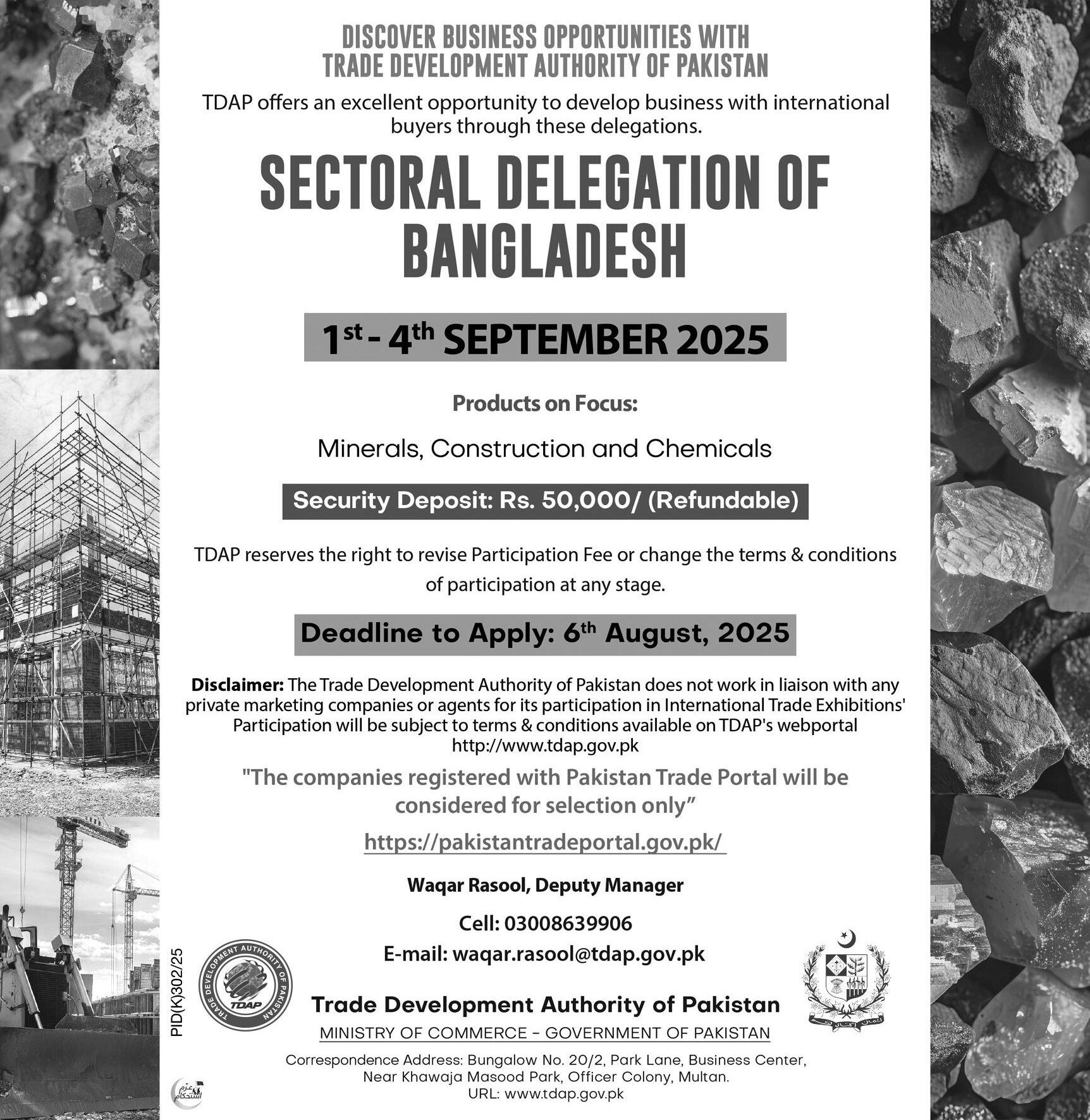
BEIJING
s ta f f c o r r e s p o n D e n t
China supports the mediation efforts of the Association of Southeast Asian Nations (ASEAN) to resolve the dispute between Cambodia and Thailand through the “ASEAN Way said Chinese Foreign Minister Wang Yi during a meeting with ASEAN Secretary-General Kao Kim Hourn in Beijing on Friday China and ASEAN should work together to safeguard regional peace and stability Wang also a member of the Political Bureau of the Communist Party of China Central Committee told Kao The clashes between Cambodia and Thailand which have resulted in casualties, are deeply distressing and concerning, Wang said The root of the issue
lies in the historical legacy left

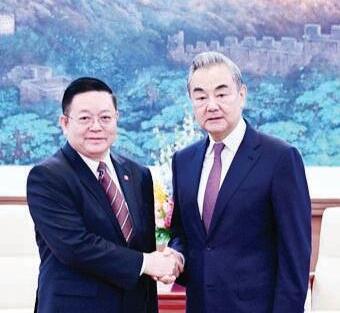


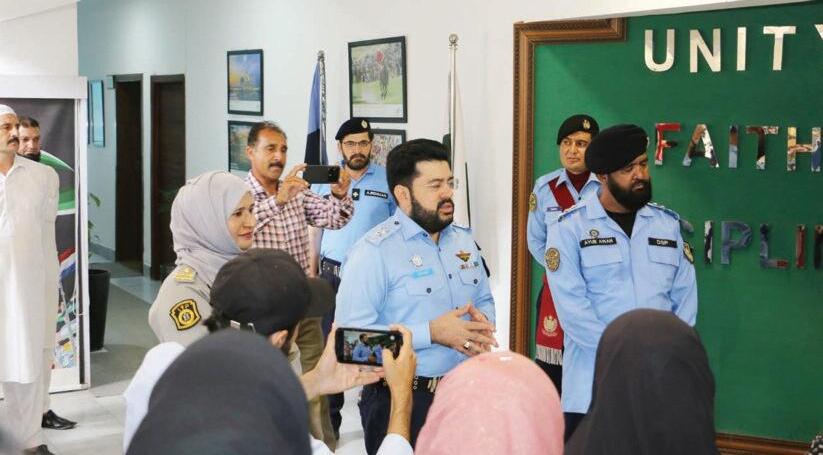
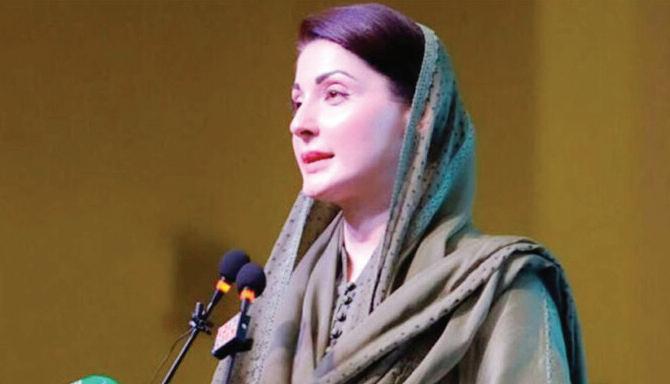
Munir: A zma Bokhari
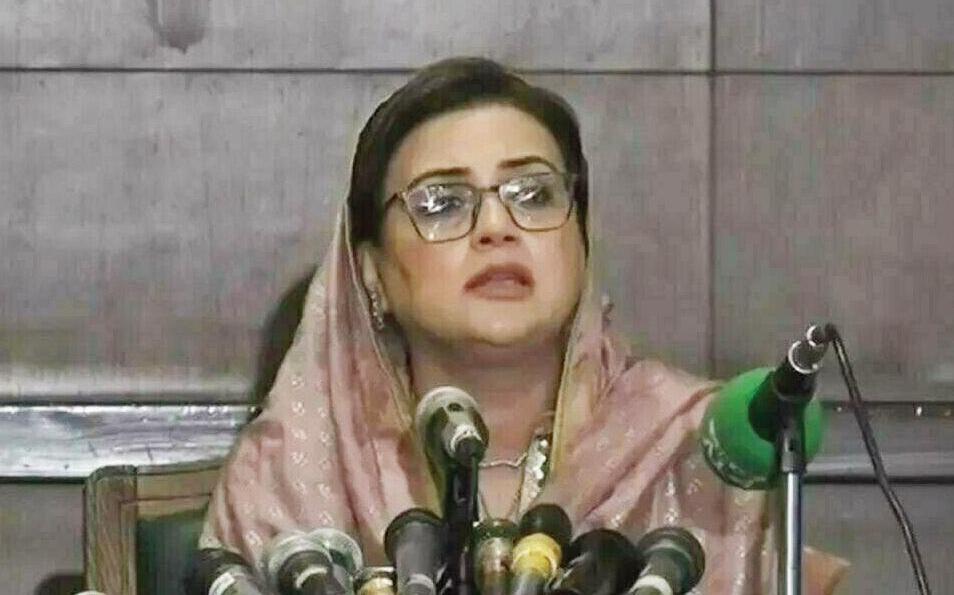
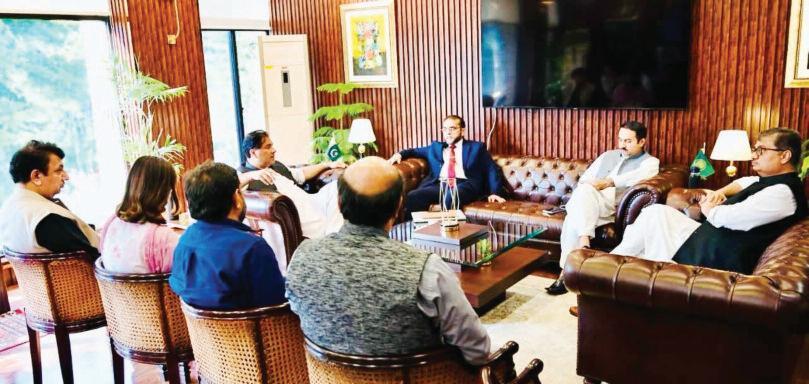

a groundbreaking exhibition bringing together artists from Pakistan and the UK to explore the transformative potential of the moving image as a medium of resistance disruption and reimagination The exhibition opens with a public reception on 30 July 2025 from 4:00 PM to 8:00 PM featuring an Artist Panel Discussion from 6:00 PM to 7:00 PM and will remain on view until 8 August 2025 Daily viewing hours are 10:00 AM to 4:00 PM (closed Saturdays) at PNCA, Islamabad Curated by Islamabad based curator and designer Sarah Rajper the exhibition reframes film video and new media as powerful tools for questioning how we see sense and experience the world It is the culmination of Rajper s participation in the prestigious Art Exchange: Moving Image curatorial fellowship a year-long international programme, supported by the British Council and organised by LUX (UK), and Art South Asia Project The fellowship included mentorship critical exchange and research visits to major UK institutions such as Tate Modern Somerset House Barbican Centre and the British Film Institute
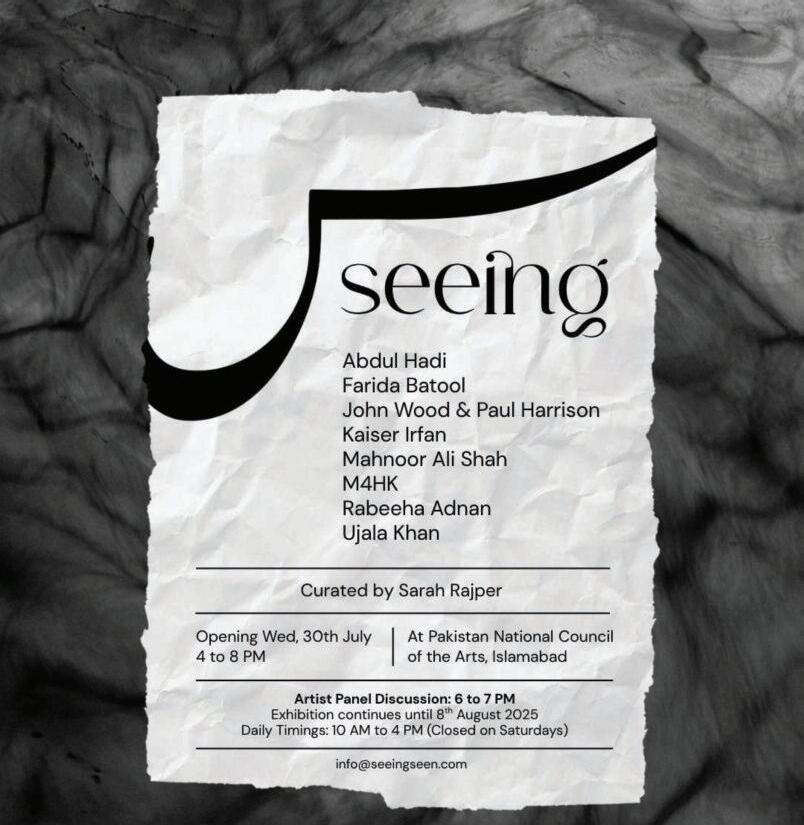
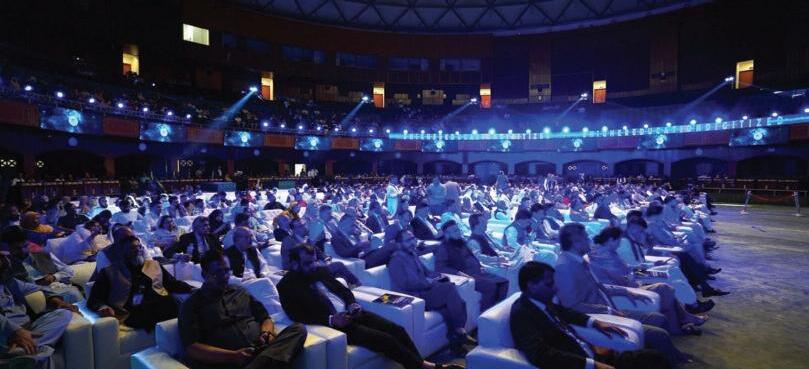
Seeing, س (Seen) engages with themes of memory, identity, and temporality, positioning the moving image as a fluid, uncontained force in contemporary visual culture It contributes to the evolving discourse on new media and experimental art within Pakistan’s unique cultural context The exhibition features works by prominent Pakistani artists Abdul Hadi, Farida Batool, Kaiser Irfan, Mahnoor Ali Shah, M4HK, Rabeeha Adnan, and Ujala Khan alongside UK-based artist duo John Wood and Paul Harrison with additional selections from the British Council Art Collection
A dynamic public programme will run throughout the exhibition, including artist talks, panel discussions, workshops, lectures, and presentations focused on film, media, identity, and perception

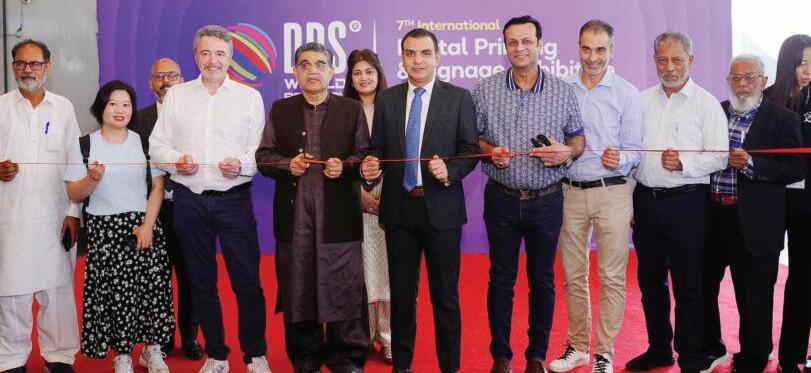

PAKISTAN TEAMS UP WITH TURKIYE, RUSSIA FOR FRESH OFFSHORE DRILLING
IMF rejects Pakistan’s proposal to abolish 4% sales tax on unregistered persons, asks to expand tax base g
The International Monetary Fund (IMF) has rejected a proposal by Pakistan to abolish the additional 4% sales tax on unregistered persons, linking its removal to a required expansion of the sales tax base, according to news reports
During a meeting of the Senate Standing Committee on Finance chaired by Senator Saleem Mandviwalla FBR s Member of Inland Revenue Operations Dr Hamid Ateeq Sarwar explained that the IMF instructed that the government must first register 50,000 new taxpayers before revising the tax Sarwar said that the 4% additional sales tax, which was introduced to bring unregistered businesses into the tax net, has instead led to businesses avoiding registration while continuing to pass the cost onto consumers As a result despite the extra tax burden many businesses remain outside the formal tax system
During a meeting FBR officials discussed the concerns over the new measures, which include the arrest powers granted to the FBR and a provision requiring

Ait zaz Ahsan condemns conviction of Dr Yasmin Rashid
PM S hehbaz welcomes former PTI leader Nawabzada Mohsin into PML-N
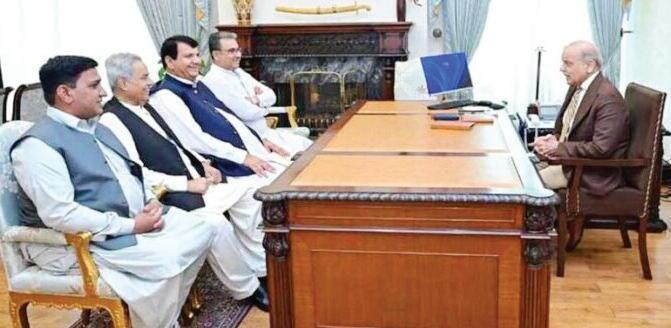
Ali Khan and his family into the PMLN fold I am confident that with your inclusion the party will gain significant momentum in Khyber Pakhtunkhwa, said the Prime Minister He emphasized that Nawabzada Khan’s leadership and influence would play a crucial role in strengthening PML-N’s outreach and public engagement in the province
The Prime Minister assured Nawabzada Mohsin Ali Khan that the federal government remains dedicated to the welfare of the people of Khyber Pakhtunkhwa, underlining the government’s ongoing commitment to fostering peace and stability in the region


